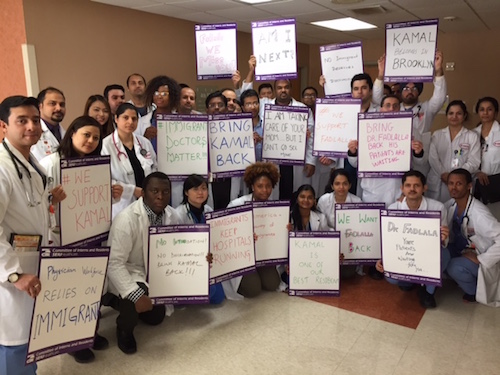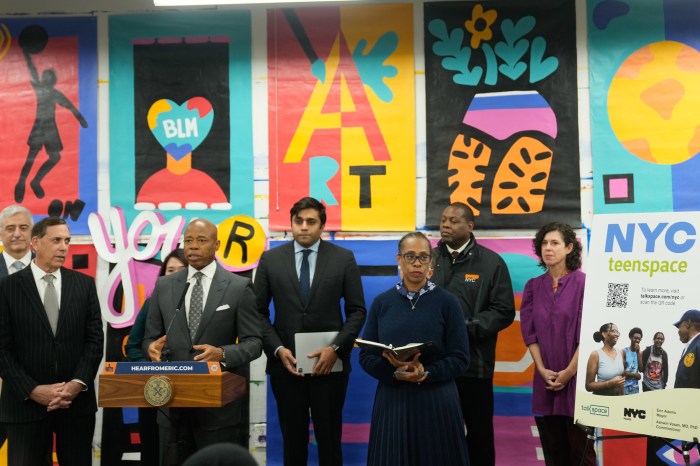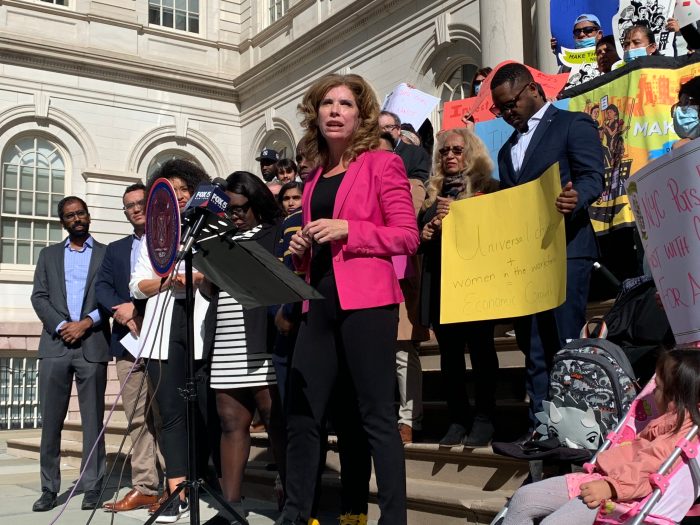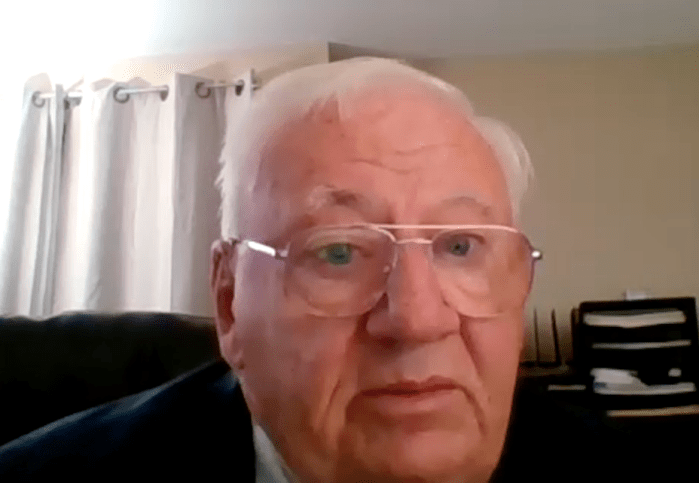Interfaith Hospital, 1545 Atlantic Avenue in Bedford-Stuyvesant, is standing united with one of their second year residents, Dr. Kamal Fadlalla, who is currently locked out of the United States.

Dr. Fadlalla was back in Sudan visiting family on vacation after not seeing them for almost two years, when he was stopped from boarding a plane bound for New York City due to the travel ban signed by President Donald Trump this past Friday.
The second year internal medicine resident is on an H1-B visa for foreign workers in specialty occupations “that normally requires a bachelor’s degree or higher in a related field of study (e.g. engineers, scientists or mathematicians), and you have at least a bachelor’s degree or equivalent in a field related to the position”, according to the website for U.S. Citizenship and Immigration Services.
“This is an unfortunate order that is having unintended consequences on innocent people who are legally here in this country and have the unfortunate circumstance of coming from countries,they can’t choose where they’re born, but have been exceptional individuals contributing to this country and are affected in a negative way,” said LaRay Brown, CEO of Interfaith Hospital.
Initially, everything was going fine for Fadlalla who had made it through multiple checkpoints including an immigration checkpoint and security before being denied passage aboard the plane. According to ProPublica, Fadlalla was called out over the intercom system and told to return to the counter where he was told from an officer that the airline’s headquarters had ordered that he not board the plane. He was later detained at the airport for four hours before having to return to his family home almost two hours away from the airport.
Dr. Fadlalla has been with Interfaith for almost two years and is a critical staff member to the hospital’s ability to provide quality health care. The Sudanese native oversees an average of 50 patients for outpatient treatment and 16-20 patients within the hospital, who will now be forced to be seen by other medical personnel. Fadlalla is one of four Sundanese workers at Interfaith but the only one to be directly affected by the travel ban.
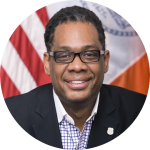
Also coming to Dr. Fadlalla’s defense was local City Councilman Robert Cornegy Jr. (Bedford-Stuyvesant, Northern Crown Heights).
“While he [Dr. Fadlalla] and other immigrants are banned from re-entry into their homes and lives, those of us who are in the United States suffer from their absence. My thoughts are with Dr. Fadlalla during this difficult time. I have spoken to Interfaith’s CEO, LaRay Brown, as well as our state and federal representatives. It is my hope Dr. Fadlalla is able to return home soon,” said Cornegy, Jr.
Brown, went on to echo the devastating effects of Fadlalla’s absence, “that responsibility and assigning of outpatients and inpatients is going to be carried by his colleagues which adds a hardship to them because they are also seeing their patients. But more importantly these patients have come to know and rely on this doctor. They have relationships with this doctor. He knows what their concerns are, what their issues are and has been following their health and this [travel ban] is disrupting a healthcare relationship.”.
The Trump travel ban went into effect over the weekend and has been causing mass impact across the nation. Doctors, professors, students and refugee families are being denied entry into the country. The executive order Protecting The Nation From Foreign Terrorist Entry Into The United States bans citizens from seven predominantly Muslim countries from entering the U.S. for the next 90 days and prohibits the entrance of all refugees for the next 120 days. The countries listed in the order include Iran, Iraq, Syria, Sudan, Libya, Yemen and Somalia.
The Committee for Interns and Residents is handling Dr. Fadlalla’s case and working to get him back to the United States as quickly as possible.
The executive order comes as American patients increasingly rely on foreign trained doctors. Each year around a quarter of the residents and fellows in advanced training programs around the U.S. attended medical school outside the country and about 15-20 percent of the total are not U.S. citizens. In the meantime, Mrs Brown will keep Fadlalla’s residency slot open until his return and is committed to having him finish his studies at Interfaith Hospital.


